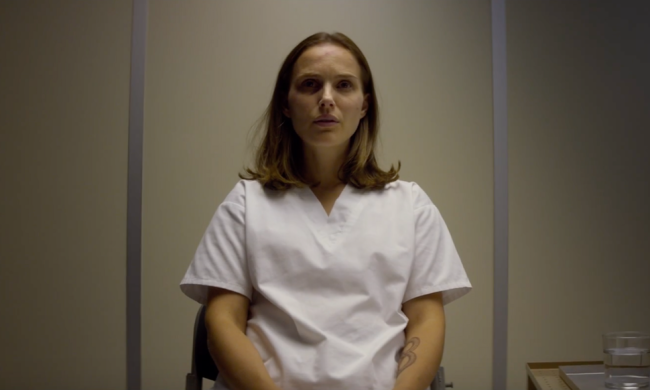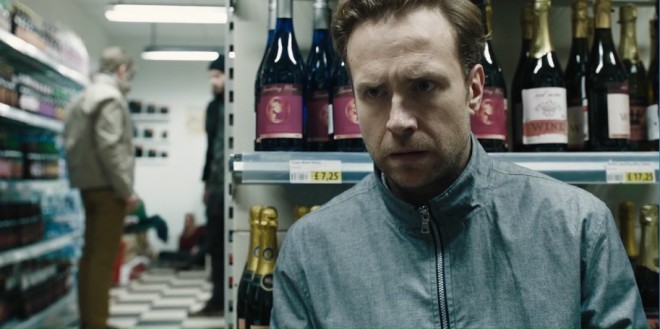I was in the process of reading a screenplay for a consultation a few days ago when the writer e-mailed me with a new draft that contained a couple of minor scene changes. If I hadn’t already started reading his screenplay, he asked, could I please read this new version instead?
This happens a lot. Whether it’s for notes or Amateur Offerings submissions, writers are constantly sending me scripts with a minor update here or a scene tweak there. I’ve always found the practice a curious one. Do these writers really believe that by moving the location of Scene 37 to a bowling alley from a Starbucks, that it will dramatically influence the way their story reads?
And yet, a part of me understands it. Writers want nothing less than the best version of their script read. So even if they come up with five better lines of dialogue in that argument on page 53, they want you reading that script, not the one with the slightly lamer dialogue, which they can’t believe they’d settled on in the first place.
But look at it from a reader’s perspective. Is that really going to affect the way we see the script? Are those five lines really going to be the game-changer that turns your script from “What the hell did I just read” to “Genius?” The truth is, the only way to make a script read markedly better is to make wholesale changes – eliminate some characters, combine others, clarify the goal, tighten up your second act, add more conflict, up the stakes, strengthen your hero’s character arc. A big impact requires big change.
However, this practice got me thinking. What if there WAS a quick change you could make to your script that would make it markedly better? Say you only had 30 minutes. Could you dramatically improve your script in that time? Or, to focus in the question, what’s the fastest change you can make that has the biggest impact on your screenplay?
I didn’t hesitate before I knew the answer.
It’s how you introduce your protagonist. That initial scene where we meet your hero is the most important scene in the movie. Why? Because it doesn’t just affect that scene. It affects how we perceive your hero in every other scene they’re in. Therefore, if you nail that scene, your script becomes markedly better.
Think about some of the great character introductions of all time. Indiana Jones. Hannibal Lecter. Deadpool. Hans Landa. Or even some of the “second tier” great introductions. Juno. Columbus (Zombieland). Thanos. Driver (Drive). Trinity (The Matrix). All of them have the same thing in common. After those scenes, we knew exactly who those characters were, and we wanted to spend as much time with them as possible.
Now that you know how important this scene is, how do you write it? Start by finding a scenario that gives your hero the most potential to shine. For example, let’s say I’ve written a suburban father character. There are so many times during this character’s day that I can introduce him. I can introduce him working in his office. I can introduce him getting lunch. I can introduce him picking up his dry cleaning. I can introduce him making dinner for the family. But do any of those scenes have the potential to make our dad shine? To come off as memorable? Probably not.
But let’s say there’s an important presentation at work today. A 10 million dollar account is on the line. And our suburban dad is giving the presentation. And right before the presentation, his computer conks out. He doesn’t have his notes. But he’s still got to pull the presentation off. It’s not exactly outrunning a boulder in a Mayan temple. But that scene’s going to be way more interesting than any of the others I mentioned.
What you’re ideally looking for is a scene that displays your protagonist’s unique set of skills (or lack of skills!). What makes them worthy of our attention. That’s why the Indiana Jones opening is considered the best introduction of all time. It’s basically a resume of what makes Indiana Jones so great. He susses out traps. He outsmarts tricks. He calmly wipes away problems (deadly spiders). When the worst of circumstances are thrown at him, he finds a way out. Imagine if every character could be introduced this way.
But you don’t have to throw your character into a big action scene to get our attention. One of the best ways to introduce a character is to give them a difficult choice. The Ritual is a great example of this. The main character is given the harrowing choice of either saving his friend, who’s being brutally attacked, or remaining hidden, so he stays safe. Imagine that same character if we never saw this scene. If we only heard about it via backstory. What if the writer had, instead, introduced this character saying goodbye to his wife and kids for the day, like I’ve seen in so many other screenplays? Your perception of who that character was and how interested in him you would be is completely changed. That introduction was everything. (note: this is actually a delayed intro, which I’ll explain in a second)
Getting more specific, there are numerous things you can do in an introductory scene to make your hero impactful. Have them get bullied. The primal desire to sympathize with those who are being unfairly attacked gets us on board with them right away. Outsmart someone. We LOVE characters who can outsmart, outwit, out-clever, someone. Just make sure they’re LEGITIMATELY outsmarting someone and not “movie-logic” outsmarting them. Solo tried to do this by having Han Solo throw a rock at a window to shine light on his light-sensitive alien-captor. We didn’t even know the rules of this room in advance (that the alien was light-sensitive), so Han’s “outsmarting” was lost on us. You can place your protagonist in some kind of peril. It’s better to meet our hero walking the plank than swabbing the deck. You can place your character in any sort of emotionally charged situation and we’ll be drawn in. We meet Natalie Portman’s character in Annihilation in a quarantined debriefing as the lone survivor of an expedition into a disease-ridden anomaly. It’s an intense scene. Show your character being risky, daring, reckless even. We meet Jack as he puts everything he owns on a poker hand for a ticket on the Titanic. And if you can’t think of anything, there’s the old standby – show your character being brave. We love bravery.
Sometimes, the script’s narrative doesn’t allow for the perfect introduction. Take the introduction of Han Solo in the original Star Wars. His introduction is kind of lame. We cut to him already sitting at a table. The movie had to do this because Lucas wanted to keep the story moving. Obi-Wan and Luke needed a pilot. This guy’s a pilot. Let’s intro him quickly and get to the negotiation.
In these cases, you can go for a delayed “secondary intro.” After this scene, they have the famous scene between Han and Greedo. This is everything a good intro scene should be. Han is trapped. He’s got to use his wits to stall the alien. All so that he can blast him to smithereens before the same thing happens to him. After this scene, we’re all in with Han.
If that’s not on the table – if your intro is still lame – ask yourself if you HAVE to introduce your hero where you’re introducing them. It’s important to remember that YOU decide when and where we meet your hero. With a little ingenuity, you can do anything. If they’d began Annihilation traditionally – with Natalie Portman back at home doing her daily chores, waiting for news on her missing husband, we would’ve formed a very different opinion of her. Instead, director Alex Garland manipulated the timeline so that we started in the future, where Portman’s character had already come back from the Shimmer, and was now being interrogated in a quarantined room, complete with contamination suits. A much more interesting way to meet her. So don’t convince yourself that you can’t move things around when you are the writer. You are God. You can do anything. Take advantage of that.
So to summarize – if for any reason you’re trying to improve your script as much as possible and you only have a little bit of time. Don’t focus on altering the dialogue on page 74. I guarantee you that will have zero influence on how the reader receives your script. Instead, ask yourself if there’s a stronger more interesting way to introduce your hero. And if you’ve got that down, ask if there’s a stronger more interesting way to introduce your love interest, or your villain. That’s because the effects of these changes aren’t limited to these scenes. But, rather, they influence how readers experience every scene from here on out.



